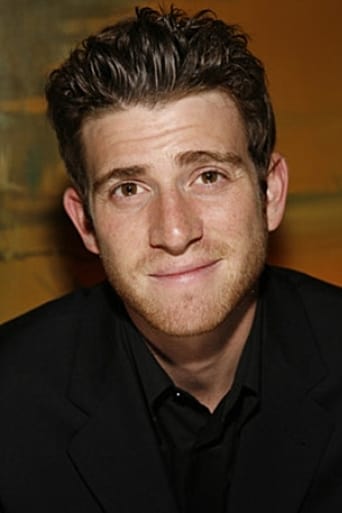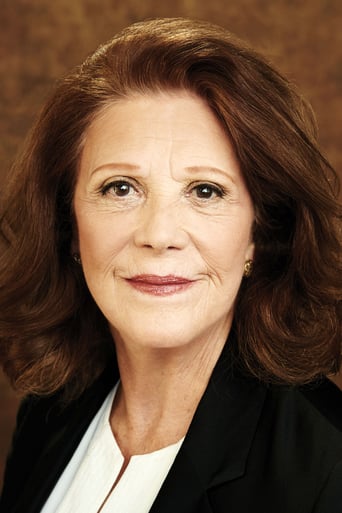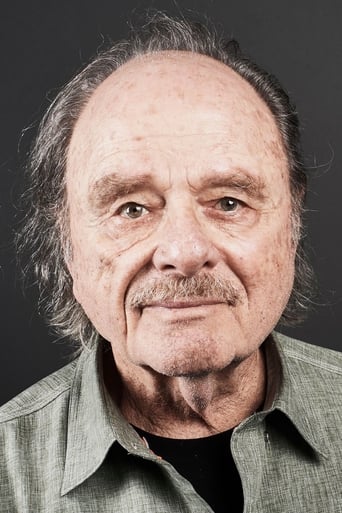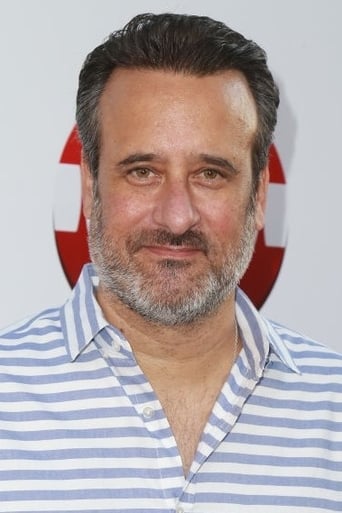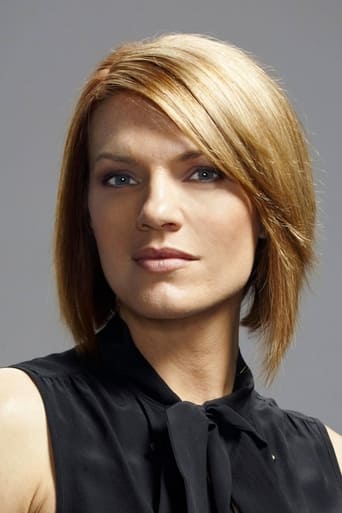Brenda
The plot isn't so bad, but the pace of storytelling is too slow which makes people bored. Certain moments are so obvious and unnecessary for the main plot. I would've fast-forwarded those moments if it was an online streaming. The ending looks like implying a sequel, not sure if this movie will get one
Edward Shain
Small films like small books depend on one or two core elements to get it right because there's neither room nor budget for more. Writers make decisions. Producers make more decisions, and everything's in service to getting it done, getting it on the page, putting it up on the screen, and then hoping like hell the whole is greater than the sum of the parts.The usual term for such works is intimate, but usually what's meant by that is "personal." Personal films, though, are often in-your- face dramatic (or comedic) pieces depending in shock, or arcana or attitude to interest the viewer. If one intends intimate, then a lot of meaning and insight will be between the lines. Intimacy is rarely explicit, but rather reflected in the immediate comprehension of what's signified but not spoken. Often there's not much explosion, if any (though there will be dramatic pivot points). Michael Maren's film "A Short History of Decay" is a small, intimate film wholly dependent upon the relationships between the four main characters, a procrastinating ne'er-do-well younger brother (Bryan Greenberg), his older, more successful brother (Benjamin King), and their ailing parents,, a father (Harris Yulin) stricken by stroke but still competent, and a mother (Linda Lavin) disappearing into the wispy vapors of dementia (Alzheimer's) to drive the film.Indeed, the plot, as little as there is of it, is absurdly simple. The father suffers a stroke, and the two brothers end up in Florida trying to cope with what's an impossible situation: their father's rapidly declining health and their mother's descent into dementia "We're losing," the father says. He's right. The two sons hang out for a while. Small changes occur, but at the end of the film, Big brother goes back to his family, and Little brother stays on. That's it. If you're looking for special effects and loud noises, this is not that film."Decay," though, is worth whatever effort one has to exert to see it. The actors feast on Michael Maren's words, their characters plumping and prospering as Maren's dialogue lights up the complex connections, letting the audience understand changes which are percolating even as the characters in the film don't yet have a clue about it. Ultimately, at least in my view, it's the brothers who are central, the absolute one core element that has to work or the film falls to pieces.It works. In spades. The two brothers contain everything about the family worth understanding. I suspect Lavin and Yulin as the parents will garner the most attention, but watch Greenberg and King go to work here. The brothers are the product of their parents' lives, and each is facing a difficult stretch that strains the static way they'd previously the family as a unit, and their own place in the cosmos. The dialogue sings of underlying affection salted with genuine anger, bitterness and jealousy, yet leavened by commitment to their parents. Filmgoers won't get many chances in their lifetime to see relationships as beautifully drawn as this. It's worth the price of admission alone. I've no idea how this film will percolate out into theaters elsewhere, but right now it's at The Village East Cinema in New York City, 189 2nd avenue (11th & 12th streets).
mmorris348
"A Short History of Decay" is a funny, heartbreaking glimpse into our aging, our loves and our losses. There are so many touching moments that have stayed with me - the two grown brothers, sharing their childhood room, who have a fistfight and their mother tells them to settle down, the parents having a party with the mother's manicurist, the painting that Nathan hangs in his parents apartment. At the same time I found myself drawn to the painful portrait of the judgmental father whose sons continue to disappoint him. Beautiful and funny performances by Linda Lavin and Harris Yulin, and a wonderfully drawn sympathetic son, Bryan Greenberg. I think this film will be seen the way "The Squid and The Whale" has been seen – as an iconic look at an ordinary family.
rahhjohn2
Yes, this is a tear jerker, but it is also the way couples should view their marriage commitment. A wonderful film depicting a glimpse into the world of Alzheimer's. And it doesn't only show the terrible side. The firm maintains the dignity of all the characters in a way you don't often find in this "throw away" society. What do I mean by that? There was no talk about having a poorer quality of life resulting from the Alzheimer's--the main character was still a much-loved member of the family, all the way down to her grandchildren. I think the political musings on the one brother's job could have been avoided and not taken away anything from them movie. I don't think it was the proper background for such disagreements.I really enjoyed this film and plan in seeing it again when it plays locals. I hope many more people take my suggestion.

